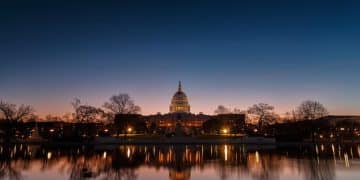Political Figures & Social Media: New Rules & Penalties in 2025

In 2025, political figures’ use of social media faces stricter guidelines, focusing on transparency, accuracy, and responsible engagement to prevent misinformation and ensure fair elections, with potential penalties for violations.
The landscape of political communication is constantly evolving, and social media has become a critical battleground. As we move closer to 2025, it’s essential to understand the new guidelines and potential penalties surrounding political figures’ use of social media.
Understanding the Evolving Role of Social Media in Politics
Social media has fundamentally reshaped how political figures interact with the public. It offers unprecedented opportunities for direct communication, grassroots mobilization, and real-time engagement. However, it also presents challenges related to misinformation, echo chambers, and the potential for manipulation.
Political campaigns have become incredibly reliant on platforms such as Twitter (now X), Facebook, Instagram, and TikTok, which allow them to circumvent traditional media outlets and reach voters directly. However, this direct access also carries a significant responsibility to ensure that the information shared is accurate, transparent, and respectful.

Benefits and Challenges of Social Media Engagement
Social media offers several key advantages for political figures, including:
- Direct Engagement: The ability to communicate directly with constituents, bypassing traditional media filters.
- Rapid Dissemination of Information: Quickly spreading messages and updates to a wide audience.
- Grassroots Mobilization: Organizing and mobilizing supporters for rallies, campaigns, and other political activities.
- Cost-Effectiveness: Reaching a large audience at a fraction of the cost of traditional advertising.
However, these benefits are counterbalanced by significant challenges, such as the spread of misinformation, the creation of echo chambers, and the potential for foreign interference in elections. These challenges necessitate clear guidelines and potential penalties to ensure responsible use of social media by political figures.
In summary, as social media continues to play a central role in political discourse, understanding its benefits and challenges is crucial for developing effective regulations and promoting informed civic engagement going forward.
New Guidelines for Political Figures on Social Media in 2025
In 2025, stricter guidelines are expected to govern how political figures use social media, addressing concerns about misinformation, transparency, and accountability. These guidelines aim to strike a balance between protecting free speech and preventing the spread of harmful content.
The focus is on ensuring that political figures use these platforms responsibly, understanding the influence they wield and the importance of maintaining public trust. Key areas of focus include fact-checking protocols, disclosure requirements, and restrictions on the use of bots and fake accounts.
Key Areas of Regulation
The new guidelines are expected to cover several critical areas:
- Transparency: Requiring political figures to clearly identify themselves and their affiliations on social media platforms.
- Fact-Checking: Implementing stricter fact-checking protocols to prevent the spread of misinformation.
- Authenticity: Prohibiting the use of bots and fake accounts to artificially amplify messages or create false impressions of public support.
- Responsible Engagement: Encouraging respectful and civil discourse, discouraging personal attacks and inflammatory rhetoric.
These regulations may also address the use of algorithms and data analytics in political campaigns, ensuring they are used ethically and transparently. The goal is to create a more level playing field, where factual information prevails, and voters are not manipulated by deceptive tactics.

Ultimately, the new guidelines reflect a growing recognition that social media platforms are not immune to regulation and that political figures have a responsibility to use these tools in a manner that promotes informed civic engagement and protects democratic processes.
Potential Penalties for Violating Social Media Guidelines
Violating the new social media guidelines in 2025 can lead to a range of penalties for political figures, depending on the severity of the infraction. These penalties are designed to deter misconduct and ensure accountability for those who abuse their influence on social media platforms.
The penalties can range from fines and temporary suspensions to more severe consequences, such as legal action and reputational damage. The specific penalties will vary depending on the jurisdiction and the nature of the violation, but the overarching goal is to enforce compliance and protect the integrity of political discourse.
Types of Penalties
The penalties for violating social media guidelines may include:
- Fines: Monetary penalties for spreading misinformation or violating transparency requirements.
- Suspensions: Temporary or permanent suspension from social media platforms for repeated or egregious violations.
- Legal Action: Lawsuits or criminal charges for spreading defamatory or inciting content.
- Reputational Damage: Public condemnation and loss of credibility as a result of unethical behavior on social media.
In addition to these formal penalties, political figures may also face informal consequences, such as public criticism, loss of support from constituents, and damage to their political careers. These informal penalties can be just as impactful as the formal ones, serving as a powerful disincentive against misconduct.
Moving forward, it’s crucial for political figures to understand the potential consequences of violating social media guidelines and to prioritize ethical and responsible behavior on these platforms. By doing so, they can maintain public trust and contribute to a more informed and democratic society.
Enforcement Mechanisms and Oversight
Effective enforcement of the new social media guidelines requires robust mechanisms and diligent oversight. Various stakeholders, including regulatory bodies, social media platforms, and the public, play a role in ensuring compliance and holding political figures accountable.
Regulatory bodies, such as election commissions and ethics committees, will be responsible for monitoring social media activity, investigating potential violations, and imposing penalties. Social media platforms will also need to implement their own policies and procedures for detecting and removing harmful content, as well as cooperating with regulatory investigations.
Stakeholders in Enforcement
Key stakeholders in the enforcement process include:
- Regulatory Bodies: Election commissions, ethics committees, and other government agencies responsible for overseeing political activity.
- Social Media Platforms: Companies operating social media platforms, responsible for implementing policies and procedures for content moderation.
- The Public: Citizens who can report suspected violations and hold political figures accountable for their behavior on social media.
In addition to these formal mechanisms, public scrutiny and media coverage can also play a crucial role in shaping behavior and ensuring accountability. When political figures know that their actions on social media will be closely watched and publicly scrutinized, they are more likely to adhere to ethical standards and avoid misconduct.
Going forward, effective enforcement and oversight will be essential for ensuring that the new social media guidelines achieve their intended goals of promoting transparency, accuracy, and responsible engagement in political discourse.
The Impact on Political Campaigns and Public Discourse
The new social media guidelines are expected to significantly impact political campaigns and public discourse in 2025. By promoting transparency, accuracy, and responsible engagement, these guidelines aim to create a more level playing field and foster a healthier environment for political debate.
Political campaigns will need to adapt to the new rules, prioritizing factual information, ethical tactics, and respectful communication. Candidates who embrace these principles are likely to gain credibility and support from voters, while those who rely on misinformation and inflammatory rhetoric may face backlash and diminished prospects.
Potential Effects
The potential effects of the new guidelines include:
- Increased Transparency: Greater disclosure of affiliations and funding sources on social media platforms.
- Reduced Misinformation: Fewer instances of false or misleading information being shared by political figures.
- More Civil Discourse: A shift toward more respectful and constructive communication on social media.
However, the impact of the new guidelines will depend on how effectively they are enforced and how willing political figures are to comply with them. If enforcement is weak or compliance is limited, the guidelines may have little effect on the overall tone and quality of political discourse.
Preparing for the Future of Political Communication
As social media continues to evolve and play an increasingly central role in political communication, both political figures and the public need to prepare for the future. This includes understanding the new guidelines, embracing ethical practices, and developing critical thinking skills to evaluate information effectively.
Political figures should invest in training and resources to ensure that their social media activities are conducted responsibly and in compliance with the new regulations. They should also prioritize building trust with their constituents by being transparent, honest, and respectful in their online interactions.
Strategies for Adaptation
To prepare for the future of political communication, consider the following strategies:
- Stay Informed: Stay up-to-date on the latest guidelines and best practices for using social media in political campaigns.
- Invest in Training: Provide training for political figures and their staff on ethical social media practices and compliance with regulations.
- Promote Critical Thinking: Encourage voters to evaluate information critically and to rely on credible sources of news and analysis.
By taking these steps, we can work together to create a more informed and democratic society, where social media is used to promote civic engagement and strengthen our democracy.
| Key Point | Brief Description |
|---|---|
| 📣 New Guidelines | Focus on transparency, fact-checking, and authenticity. |
| ⚖️ Potential Penalties | Range from fines and suspensions to legal action. |
| 🛡️ Enforcement | Involves regulatory bodies, platforms, and the public. |
| 🌐 Impact | Aims for more informed and civil political discourse. |
Frequently Asked Questions
▼
The primary objectives are to increase transparency, reduce misinformation, and ensure ethical conduct among political figures on social media platforms, fostering a more informed and democratic environment.
▼
Enforcement is a collaborative effort involving regulatory bodies like election commissions, the social media platforms themselves, and the general public, who can report potential violations.
▼
Violations may include spreading false or misleading information, using bots to amplify messages, failing to disclose affiliations, or engaging in personal attacks and disrespectful communication.
▼
The public can actively monitor social media activity, report suspected violations to regulatory bodies or platforms, and hold political figures accountable for their online behavior through public criticism.
▼
Political figures should stay informed on updated guidelines, invest in training for themselves and their staff, prioritize ethical communication, and be transparent about their sources.
Conclusion
Navigating the evolving landscape of social media requires a commitment to transparency, accuracy, and responsible engagement. As we move towards 2025, understanding the new guidelines and potential penalties surrounding political figures’ use of social media is essential. By embracing ethical practices and upholding the principles of informed civic discourse, both political leaders and citizens can contribute to a more democratic and trustworthy online environment.





